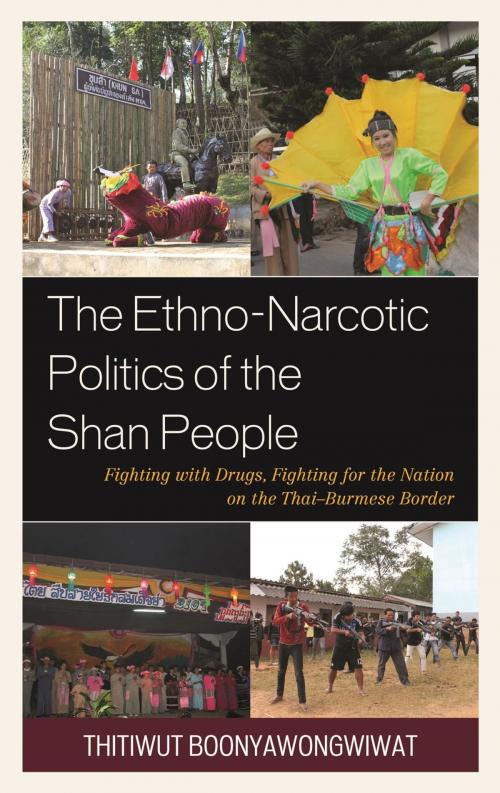The Ethno-Narcotic Politics of the Shan People
Fighting with Drugs, Fighting for the Nation on the Thai–Burmese Border
Nonfiction, History, Asian, Southeast Asia, Social & Cultural Studies, Social Science, Cultural Studies, Ethnic Studies, Anthropology| Author: | Thitiwut Boonyawongwiwat | ISBN: | 9781498520171 |
| Publisher: | Lexington Books | Publication: | November 15, 2017 |
| Imprint: | Lexington Books | Language: | English |
| Author: | Thitiwut Boonyawongwiwat |
| ISBN: | 9781498520171 |
| Publisher: | Lexington Books |
| Publication: | November 15, 2017 |
| Imprint: | Lexington Books |
| Language: | English |
This book proposes the alternative explanation on the pattern of ethnic conflict, especially the on-going civil war in Myanmar. Previously, most scholars accepted that narcotics play the crucial role in conflict as the resource of revenues. However, this book dramatically changes what we have ever thought before. It investigated in both field and documentary research by examining the role of narcotics in the ideological formation process and ethnic identification process. Consequently, the so-called ethno-narcotic politics was found in the way that the role of narcotics was able to be used as the source of political mobilization in various ways. Furthermore, the borderland is the appropriated area where the process of anti-ethno-narcotics identification could be emerged and later used as the main identity for the ethnic groups who remain fighting against state’s power.
This book proposes the alternative explanation on the pattern of ethnic conflict, especially the on-going civil war in Myanmar. Previously, most scholars accepted that narcotics play the crucial role in conflict as the resource of revenues. However, this book dramatically changes what we have ever thought before. It investigated in both field and documentary research by examining the role of narcotics in the ideological formation process and ethnic identification process. Consequently, the so-called ethno-narcotic politics was found in the way that the role of narcotics was able to be used as the source of political mobilization in various ways. Furthermore, the borderland is the appropriated area where the process of anti-ethno-narcotics identification could be emerged and later used as the main identity for the ethnic groups who remain fighting against state’s power.















